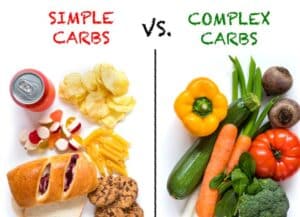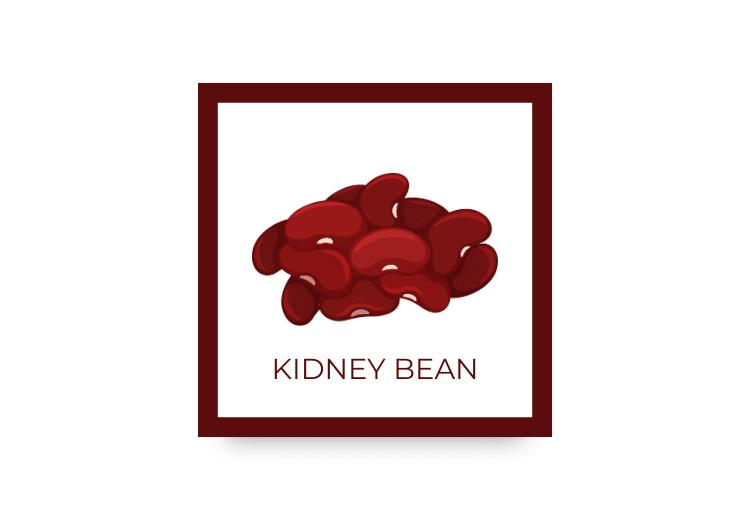What are carbohydrates? | Food High in Carbs
Carbohydrates are one of the essential macronutrients that provide energy to the body. They are composed of sugars, starches, and fibers, contributing to various bodily functions. Carbohydrates are essential for health ,but if they are consumed in excessive amount they cause health problems and are harmful to us.
Functions of Carbohydrates in the Body
Energy Source
Carbohydrates serve as the body’s primary source of energy, especially during high-intensity activities and exercise.
Brain Function
The brain relies on glucose, a type of carbohydrate, for optimal cognitive function and focus.
Supporting Metabolism
Carbs aid in the metabolism of fats and proteins, ensuring a balanced nutrient utilization within the body.

Types of Carbohydrates
Simple Carbohydrates
Simple carbs, found in sugars like glucose and fructose, provide quick energy but should be consumed in moderation due to their rapid impact on blood sugar levels.
Complex Carbohydrates
Complex carbs, found in foods like whole grains and legumes, take longer to digest, providing sustained energy and better blood sugar control.
Carbohydrates High Food for a Healthy Lifestyle
Carbohydrates are a fundamental component of a healthy diet, and understanding the sources, functions, importance, and recommended daily intake is crucial for maintaining overall well-being. Let’s explore a variety of foods, vegetables, and fruits rich in carbs, breaking down their functions, importance, and the daily intake amount.
1.Brown Rice
Function: Brown rice is a complex carbohydrate, providing sustained energy.
Importance: Rich in fiber, it supports digestive health and helps regulate blood sugar.
Daily Intake: 1 cup (cooked) provides around 45 grams of carbs.
2.Quinoa
Function: Quinoa is a complete protein with complex carbohydrates, offering sustained energy.
Importance: Contains essential amino acids, supporting muscle growth and repair.
Daily Intake: 1 cup (cooked) provides around 39 grams of carbohydrates.
3.Oats
Function: Oats are a complex carbohydrate, releasing energy steadily.
Importance: High in beta-glucans, aiding heart health and cholesterol regulation.
Daily Intake: 1 cup (cooked) provides around 27 grams of carbs.
4.Buckwheat
Buckwheat, derived from the Fagopyrum esculentum plant, is a gluten-free powerhouse known for its high carbohydrate content.
Function:High in complex carbs, buckwheat provides a steady release of energy throughout the day.
Importance:
Nutrient Source: Packed with essential nutrients like manganese and magnesium, contributing to heart health.
Digestive Support: The fiber content aids digestion and helps maintain stable blood sugar levels.
Versatile: Gluten-free and adaptable in various dishes, offering both culinary flexibility and nutritional benefits.
5.Sweet Potato
Function: A complex carbohydrate for long-lasting energy.
Importance: High in vitamins and minerals, supporting immune function.
Daily Intake: 1 medium-sized sweet potato provides around 26 grams of carbs.
6.Broccoli
Function: Broccoli contains natural sugars for quick energy.
Importance: Rich in vitamins and antioxidants, supporting overall health.
Daily Intake: 1 cup (cooked) provides around 6 grams of carbohydrates.
7.Spinach
Function: Spinach contributes natural sugars and fiber.
Importance: High in iron and other nutrients, supporting various bodily functions.
Daily Intake: 1 cup (cooked) provides around 6 grams of carbs.
8.Banana
Function: Bananas offer quick carbohydrates, ideal for pre or post-workout.
Importance: High in potassium, supporting heart health and muscle function.
Daily Intake: 1 medium-sized banana provides around 27 grams of carbs.
9.Berries (e.g., Strawberries, Blueberries)
Function: Berries offer natural sugars and antioxidants.
Importance: Rich in vitamins and fiber, supporting immune and digestive health.
Daily Intake: 1 cup provides around 15 grams of carbohydrates.
10.Mango
Function: Mango provides natural sugars for quick energy.
Importance: High in vitamin C and A, supporting immune function and skin health.
Daily Intake: 1 cup (sliced) provides around 45 grams of carbs.
11.Beets:
A Nutrient-Rich Carbohydrate Source .It is also called Beetroots. Beets contain large amount of nitrates which help to maintain heart health.
Function:Beets, rich in carbs, provide a quick energy boost, making them a natural source of vitality.
Importance:
Nutrient Density: Packed with vitamins, minerals, and antioxidants, beets support overall health and immune function.
Blood Pressure Regulation: The nitrates in beets may help lower blood pressure, promoting cardiovascular well-being.
Daily Intake: Aim for 1 to 2 cups of cooked beets per day, ensuring a balanced intake of carbs within your daily caloric needs.
Daily Intake Guidelines
While individual requirements vary, a general guideline for daily carbohydrate intake is approximately 45% to 65% of total daily caloric intake.
For an Average Adult:
- Total Daily Caloric Intake: 2,000 to 2,500 calories
- Carbohydrate Intake Range: 225 to 325 grams per day
For Active Individuals or Athletes:
- Total Daily Caloric Intake: 2,500 to 3,000+ calories
- Carbohydrate Intake Range: 300 to 500+ grams per day
Balancing Carbs with Other Macronutrients
While understanding the total daily carbohydrate intake is important, it’s equally crucial to balance carbs with proteins and fats for a well-rounded diet.
Protein Intake
Aim for 15% to 25% of your daily caloric intake to support muscle growth, repair, and overall body function.
Fat Intake
Include healthy fats, comprising about 20% to 35% of your daily caloric intake, for essential fatty acids and overall health.
Why You Should Stop Using Excessive Carbohydrates:
Embrace a Healthier Lifestyle
Excessive consumption of carbohydrates, particularly when they come from refined and processed sources, can lead to several disadvantages and negative health effects. While carbohydrates are a crucial part of a balanced diet, it’s essential to be mindful of the quantity and quality of the carbs consumed. Here are some disadvantages of excessive carbohydrate intake:
Weight Gain and Obesity
Explanation:
Consuming more carbs than the body needs can contribute to an excess of calories.
Unused calories are often stored as fat, leading to weight gain.
Impact:
Increased risk of obesity, which is linked to various health issues, including heart disease, diabetes, and joint problems.
Elevated Blood Sugar Levels
Explanation:
Excessive intake of refined carbohydrates causes a rapid spike in blood sugar levels.
The body responds by releasing insulin to bring glucose levels down.
Impact:
Frequent blood sugar fluctuations can lead to insulin resistance, a precursor to type 2 diabetes.
Increased risk of developing metabolic syndrome.
Increased Risk of Type 2 Diabetes
Explanation:
Prolonged elevated blood sugar levels and insulin resistance can lead to the development of type 2 diabetes.
Impact:
Impaired insulin function may result in difficulty regulating blood sugar, leading to diabetes.
Higher risk for cardiovascular complications associated with diabetes.
Energy Crashes and Fatigue
Explanation:
Relying on simple carbohydrates for energy can lead to rapid energy spikes followed by crashes.
This is often seen with the consumption of sugary snacks and drinks.
Impact:
Feeling fatigued, irritable, and experiencing difficulty concentrating.
Affects overall productivity and daily functioning.
Dental Issues
Explanation:
Foods high in carbohydrates, especially sugary ones, contribute to the growth of harmful bacteria in the mouth.
Impact:
Increased risk of cavities, tooth decay, and other dental problems.
Regular consumption of sugary snacks can harm oral health.
Digestive Issues
Explanation:
Insufficient fiber intake, often associated with excessive refined carbohydrates, can lead to digestive problems.
Impact:
Increased risk of constipation and other gastrointestinal issues.
Inadequate fiber can negatively impact gut health.
Adverse Impact on Heart Health
Explanation:
Diets high in refined carbs may contribute to unfavorable changes in cholesterol levels.
Impact:
Elevated levels of triglycerides and reduced levels of beneficial HDL cholesterol.
Increased risk of cardiovascular diseases.
Impact on Mental Health
Explanation:
Diets high in refined sugars and low in nutrient-dense foods may negatively affect mental health.
Impact:
Increased risk of mood swings, anxiety, and depression.
The body’s response to sugar crashes can contribute to emotional fluctuations.
Inflammation and Chronic Diseases
Explanation:
Excessive consumption of refined carbohydrates can contribute to chronic inflammation in the body.
Impact:
Chronic inflammation is linked to various diseases, including heart disease, arthritis, and certain cancers.
Short summary:
It’s important to note that not all carbohydrates are created equal, and the focus should be on choosing complex carbohydrates from whole, unprocessed foods. Balancing carbohydrate intake with proteins, healthy fats, and regular physical activity is key to maintaining a healthy and sustainable lifestyle. Always consult with a healthcare professional or a registered dietitian for personalized advice based on individual health conditions and needs.
Also Read: What Is Sleep Paralysis? Causes, Symptoms, and Treatment
Frequently Asked Questions:
What is the significance of balancing carbohydrates in my diet?
Balancing carbohydrates is essential for maintaining stable blood sugar levels, providing sustained energy, and supporting overall health. It helps prevent the negative effects of both excessive and insufficient carb intake.
What are some high-carb foods that should be consumed in moderation?
Foods like sugary snacks, sodas, and refined grains are high in carbs and should be limited. Opt for healthier alternatives like fruits, whole grains, and legumes to meet your carbohydrate needs.
Can a low-carb diet be sustainable in the long term?
Yes, a low-carb diet can be sustainable with proper planning. Focus on nutrient-dense, low-carb foods, and consider gradual adjustments to make the transition more manageable.
Are there health risks associated with extremely low-carb diets?
Extremely low-carb diets may lead to nutrient deficiencies and lack of dietary fiber. It’s crucial to consult with a healthcare professional to ensure nutritional needs are met while following a low-carb approach.
How does the glycemic index impact carbohydrate choices?
The glycemic index measures how quickly a carbohydrate-containing food raises blood sugar levels. Choosing low-GI foods, such as whole grains and legumes, can help regulate blood sugar and provide sustained energy.





